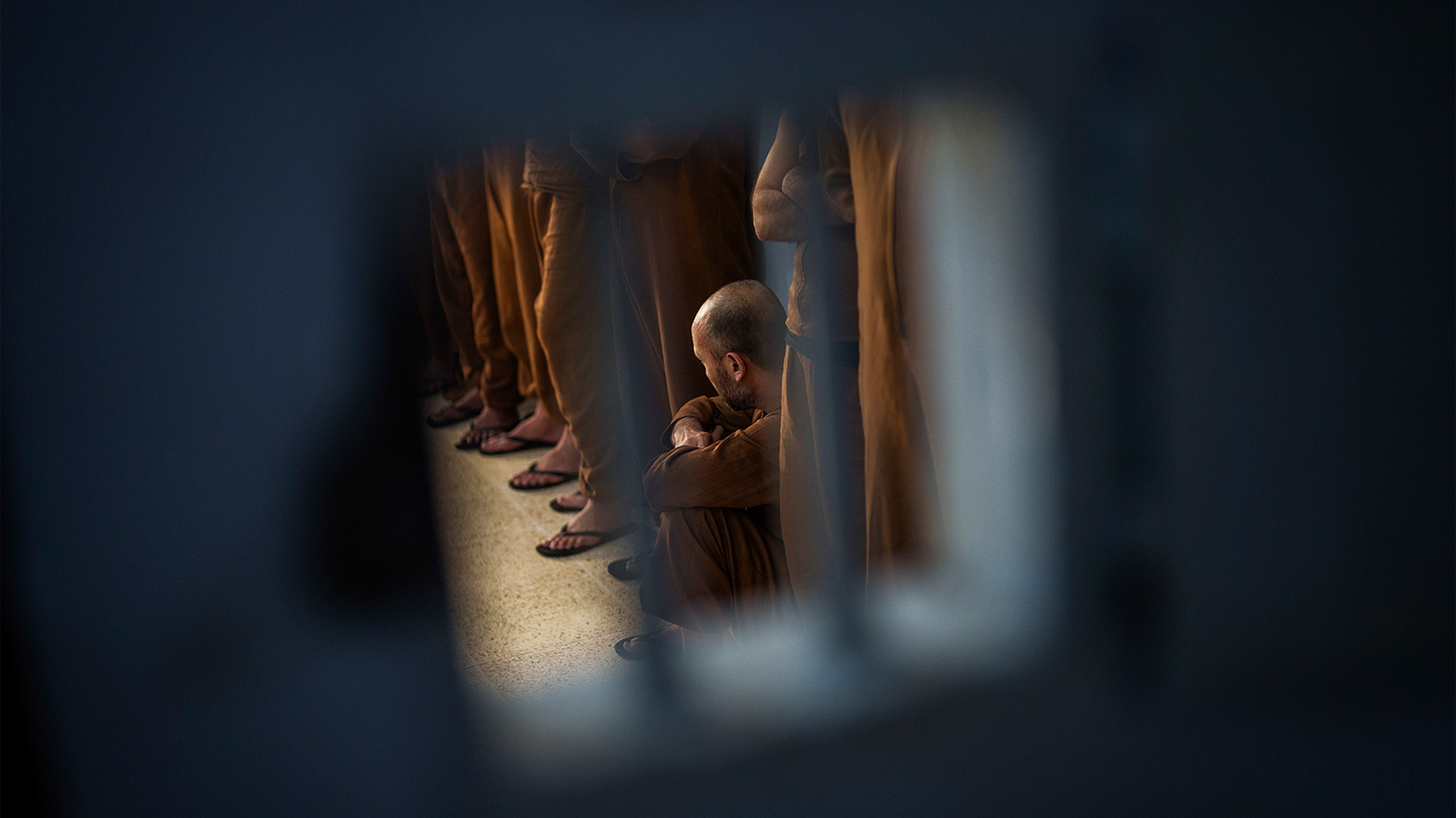2,000 ISIS-Linked Iraqis in Syria Are a 'Time Bomb', Says Iraqi Official
“The government’s efforts should be based on strengthening the borders and also working to repatriate these terrorists and bring them to justice so they receive their fair punishment,” he stated.

ERBIL (Kurdistan24) – A member of Iraq’s Fatah Alliance has sounded the alarm over the presence of more than 2,000 Iraqi nationals affiliated with extremist groups in Syria, warning that many hold influential positions within terrorist networks and pose a growing threat to Iraq’s national security.
In an interview with Baghdad Today News Agency, Uday Abdul Hadi stated that these individuals fled Iraq after the military defeat of ISIS, particularly from western regions and Nineveh province, and found refuge in Syria, where they later regrouped. “After the liberation of Iraqi cities, especially in the western sector up to Nineveh and other areas, a number of ISIS leaders and fighters fled to Syria,” he said. “They joined peers of other nationalities before what is now known as the Syrian al-Hol Camp took shape, where thousands of ISIS-affiliated families of various nationalities were detained.”
Abdul Hadi warned that ISIS is once again expanding in several regions of Syria, especially in the vast deserts of Homs and Deir ez-Zor, areas known for being largely ungoverned and vulnerable to terrorist resurgence. “ISIS is currently expanding in several areas in Syria,” he explained. “Therefore, the government’s efforts to secure the border with Syria—which stretches over 100 kilometers—is a wise decision that we support.”
He added that a constant state of alert must be maintained along the border, calling it a “real security challenge” that requires coordinated intelligence, military readiness, and preventive diplomacy. “The terrorism card remains one of the tools manipulated by some international intelligence agencies in an attempt to achieve geopolitical goals by exploiting terrorism to destabilize countries and create a state of anxiety,” Abdul Hadi warned.
The lawmaker emphasized the need to repatriate Iraqi nationals currently detained in northeastern Syria, particularly those held in facilities run by the Syrian Democratic Forces (SDF). These prisons, including the infamous al-Hol and Roj camps, house thousands of suspected ISIS fighters and their families. Many of the detainees are foreign nationals, and some are believed to have orchestrated or participated in attacks inside Iraq.
Iraqi authorities have repeatedly warned that these camps are “ticking time bombs” capable of igniting new waves of violence through organized prison breaks or smuggling networks. The security risk was made starkly clear in 2022 when ISIS militants launched a coordinated assault on Ghweiran Prison in Hasakah, resulting in the escape of dozens of detainees and days of intense fighting. Ghweiran Prison, also known as al-Hasakah Central Prison, was originally built during the brief political union between Syria and Egypt (1958–61) to house 1,500 inmates.
It later became infamous for detaining Kurdish political prisoners under the Ba’ath regime and has seen multiple insurrections and escape attempts over the decades. After ISIS captured the facility in 2015, it was retaken in 2016 by Kurdish forces who repurposed it to house captured ISIS fighters. As the number of detainees swelled, a nearby vocational school was converted into an additional detention site.
By early 2022, these sites were holding thousands of high-risk inmates, including around 3,500 ISIS detainees and over 700 minors known as the 'Cubs of the Caliphate.' The prison attack was carried out with military precision, involving car bombs, suicide attackers, and coordination between external ISIS fighters and internal inmates. The nine-day battle left more than 100 SDF personnel and over 370 ISIS members dead, highlighting the scale of the threat posed by unsecured detention centers in the region.
As the security situation in eastern Syria remains unstable, Abdul Hadi urged the Iraqi government to adopt a dual-track approach: bolstering physical border defenses and pursuing legal and diplomatic channels to bring Iraqi militants home for prosecution. “The government’s efforts should be based on strengthening the borders and also working to repatriate these terrorists and bring them to justice so they receive their fair punishment,” he stated.
With regional security at a critical juncture, Iraq’s strategy on border control and militant repatriation is expected to become an increasingly central pillar in the country’s ongoing counterterrorism efforts.